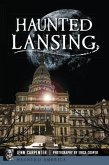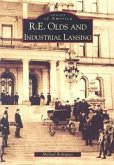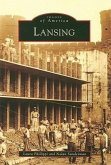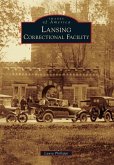Explore Lansing's role in the war to preserve the Union and end slavery When war erupted between North and South, the capital of Michigan was ready to serve. The population of Lansing in 1860 was only 3000, but by the spring of 1865, over 500 men from the Capital City had enlisted to fight. These citizen-soldiers left the farms, factories, shops and schools of their youths to fight to uphold the Union and end slavery. Many of these boys would be wounded, captured, or killed, and those fortunate enough to return, came home changed, permanently maimed, and often haunted men. Using primary sources, including letters and personal diaries, author Matthew J. VanAcker unfolds the story of uncommon valor that offers a glimpse into the lives of the soldiers, their families, and the city they left behind.
Hinweis: Dieser Artikel kann nur an eine deutsche Lieferadresse ausgeliefert werden.
Hinweis: Dieser Artikel kann nur an eine deutsche Lieferadresse ausgeliefert werden.








